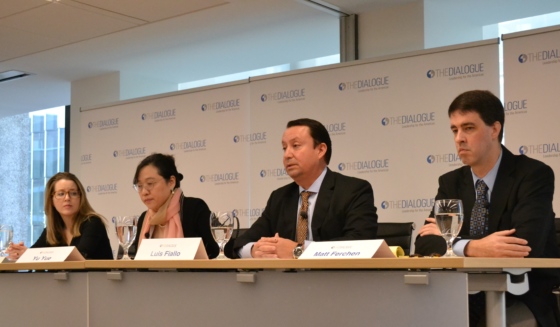 Video
Video
China’s Belt and Road: What Role for Latin America?
On December 11, the Dialogue’s Latin America and the World program convened a panel of experts to consider Latin America’s potential role in the Belt and Road Initiative.
On December 11, the Dialogue’s Latin America and the World program convened a panel of experts to consider Latin America’s potential role in the Belt and Road Initiative.
Dating back to 2001, the Working Group is one of the longest-running and most successful initiatives at the Dialogue.
Conservative presidential candidate Sebastián Piñera, who led Chile from 2010 to 2014, on Dec. 17 will face off against center-leftist Alejandro Guillier in a runoff that polls suggest will be very close. Who will win and why?
In this interview with BBC World News, Michael Shifter discusses the current state of relations between the US and the island nation, what we know so far regarding the sonic attacks to US diplomats in Havana, and what we can expect after the 2018 change of leadership if Cuba.
Every year in the Americas, noncommunicable diseases, such as cardiovascular disease, cancer, respiratory diseases and diabetes, cause four out of every five deaths, with that figure only expected to grow in the coming decades, according to the Pan American Health Organization. Are governments in the region focusing enough on preventing and treating lifestyle diseases, and how can they pay for those efforts?
未来墨西哥与中国的联系势必逐渐加强。墨西哥的市场和资源对中国企业充满了吸引力。而中国政府也期待中墨关系发展“在打造中拉命运共同体进程中发挥示范带头作用”。
Chile looked to the past to pick its future leader. Former President Sebastian Pinera is the projected winner of a presidential runoff election. With nearly all the votes counted, his challenger Alejandro Guillier conceded and congratulated the conservative billionaire on his victory. Michael Shifter, president of the Inter-American Dialogue, discusses with CGTN’s Susan Roberts.
Former Chilean President Sebastián Piñera on Sunday defeated his opponent Alejandro Guillier in the country’s presidential runoff election. To what can Piñera attribute his victory?
Energy continues to be a bright spot in the US-Latin America relationship and new developments, like an uptick in US LNG exports, offer opportunities to increase energy security and cooperation across the Western Hemisphere.
For many Hondurans, the current scene is all too familiar: it is a possible repeat of the turmoil surrounding the 2009 coup d’état, and a tragic continuation of a progressive loss of credibility in its electoral institutions.
On December 19, the Inter-American Dialogue hosted a discussion about the crisis in Honduras following the presidential elections. The debate featured Carlos Dada, founder of El Faro, Lisa Kubiske, former US Ambassador to Honduras and Juan Gonzalez, associate vice president at the Cohen Group.
Uno de los aspectos menos estudiados del ascenso de las opciones políticas de izquierda en América Latina durante la última década y media –hoy más bien en retirada—tiene que ver con la curiosa simbiosis discursiva que precedió a su llegada al poder.
Casi con certeza, Costa Rica acabará el año con la tasa de homicidios más alta de su historia, por encima de 12 por 100.000 habitantes, un nivel superior al que la OMS considera como una situación epidémica de violencia.
Kevin Casas Zamora, Investigador Asociado de Diálogo Interamericano, analiza el impacto financiamiento ilícito de la política en la democracia y los procesos electorales, y asegura que el abuso en el uso los recursos públicos para favorecer a la campaña del partido oficial dificulta a competir a la oposición.
A year and a half into his term, President Pedro Pablo Kuczynski’s government is in crisis over revelations that the president accepted payments connected to the Odebrecht corruption scandal.
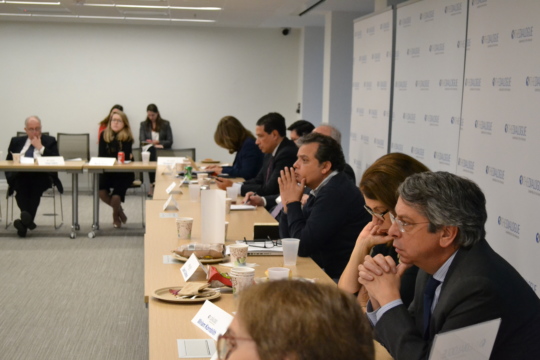
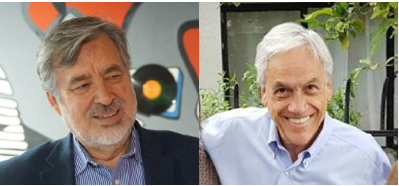
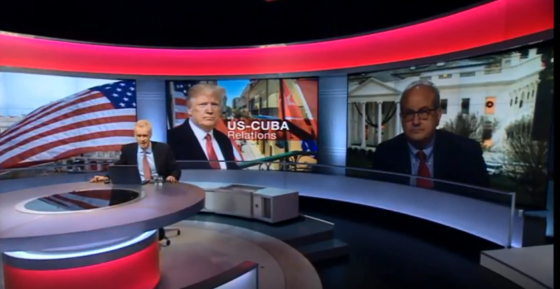 Video
Video
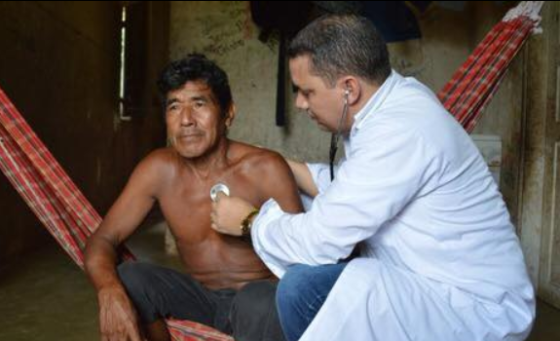
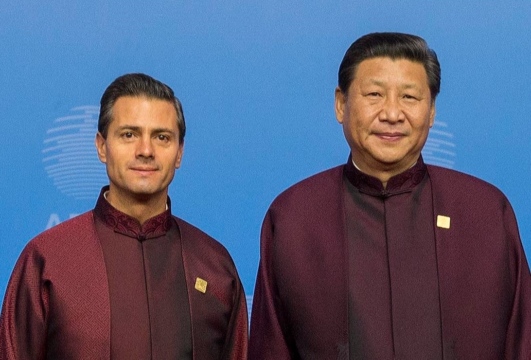
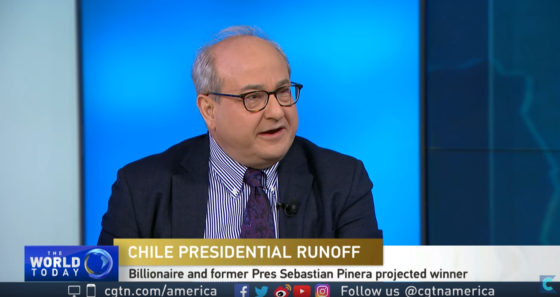 Video
Video

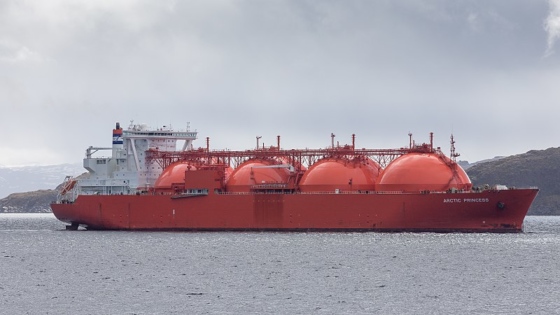
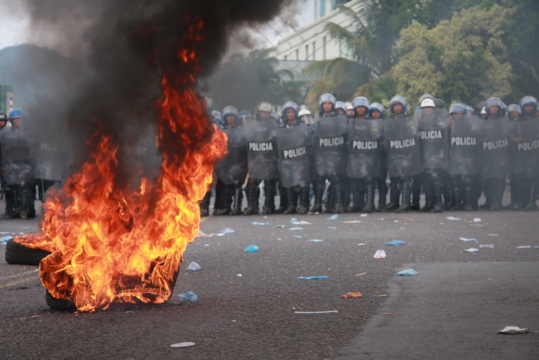
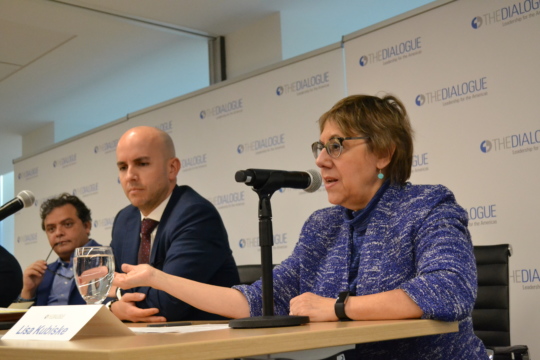 Video
Video
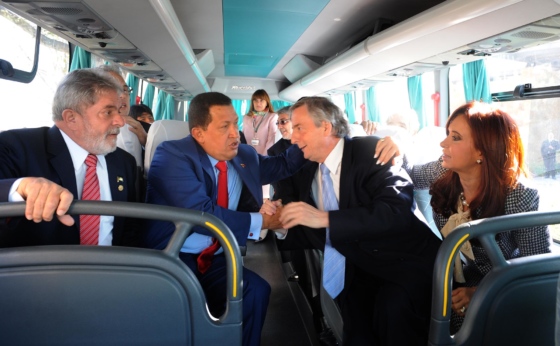
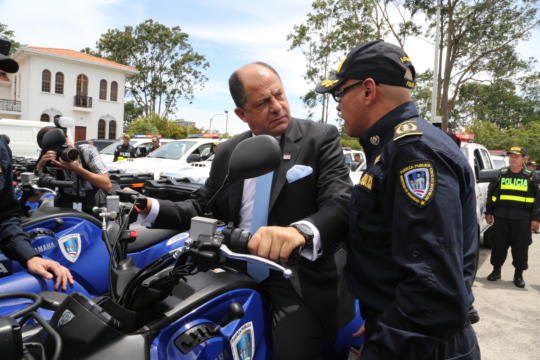
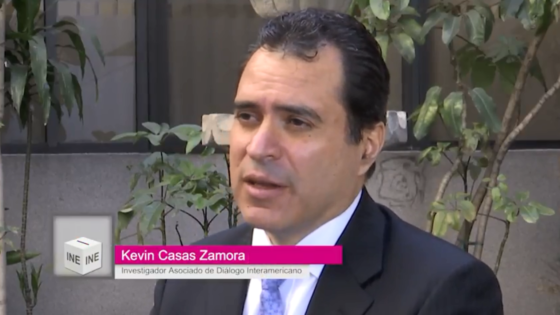 Video
Video
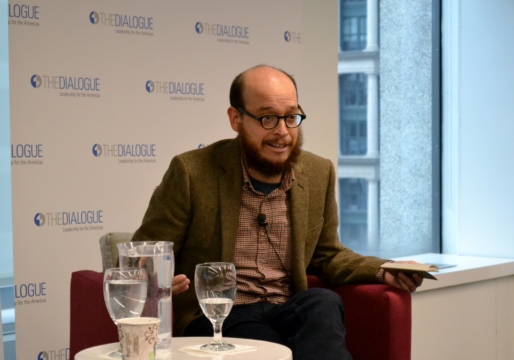 Video
Video